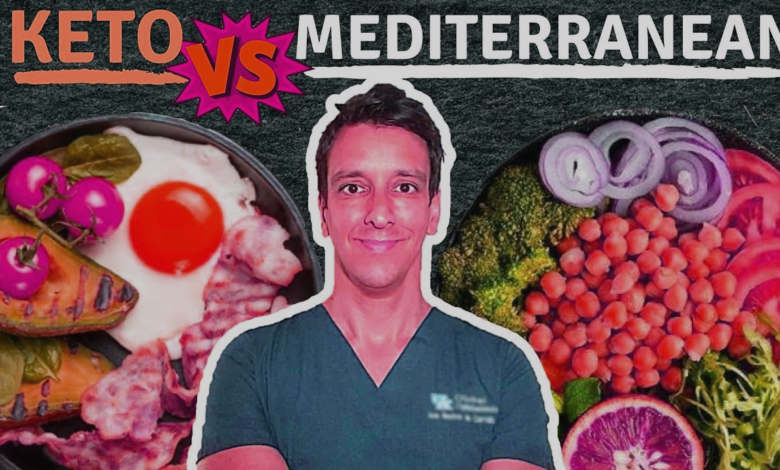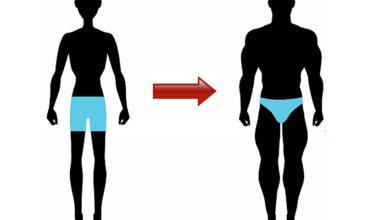Keto vs Mediterranean Diet: Which One Works Best in 2025?
Compare benefits for weight loss heart health & longevity See which diet works best for your goals this year

The keto vs Mediterranean diet debate remains a hot topic in 2025 as people continue to seek the most effective way to lose weight, boost energy, and improve overall health. The ketogenic (keto) diet, with its ultra-low-carb, high-fat approach, promises rapid fat burning through ketosis, while the Mediterranean diet emphasizes balanced, heart-healthy eating with whole grains, olive oil, and lean proteins. Both have strong scientific backing, but their differences in structure, sustainability, and long-term health effects make choosing between them a key decision for anyone looking to optimize their nutrition this year.
As dietary trends evolve, the question isn’t just about which diet helps shed pounds faster it’s about which one aligns best with your lifestyle, health goals, and long-term well-being. While keto may deliver quick results, the Mediterranean diet is praised for its flexibility, Keto vs Mediterranean Diet, and ease of maintenance. In this comparison of Keto vs Mediterranean Diet, we’ll break down the pros, cons, and latest research to help you decide whether keto or the Mediterranean diet is the right choice for you in 2025.
Keto vs Mediterranean Diet
Core Principles of Keto
Macronutrient ratio 70-80% fat, 15-20% protein, 5-10% carbs. Strict daily carb limit Typically 20-50 net grams. Emphasis on dietary fats Avocados, nuts, oils, butter, fatty fish. Protein moderation Adequate but not excessive to prevent gluconeogenesis
Metabolic Shift to Ketosis
Body transitions from glucose to fat metabolism. Liver produces ketones from fatty acids. Typically achieved within 2-7 days of carb restriction. Blood ketone levels of 0.5-3.0 mmol/L indicate nutritional ketosis.
2025 Popularity Drivers
Continued effectiveness for rapid weight loss. Growing use in managing metabolic disorders. Emerging research on neurological benefits. Increased availability of keto-friendly products.
Documented Benefits
Rapid initial weight loss (water + fat). Improved blood sugar control. Reduced insulin resistance. Enhanced mental clarity (for some individuals). Potential reduction in epileptic seizures.
Current Criticisms & Concerns
Nutrient deficiencies (fiber, certain vitamins/minerals). “Keto flu” symptoms during adaptation (fatigue, headaches). Social and lifestyle challenges in maintenance. Potential elevation of LDL cholesterol in some individuals. Limited long-term safety data beyond 2 years.
2025 Research Insights
Mixed findings on cardiovascular impact. Emerging concerns about gut microbiome changes. Debates about sustainability for population-level adoption. New studies on keto-cycling protocols. Investigation into personalized keto approaches.
Practical Implementation Challenges
Requires careful meal planning. Difficult to maintain when dining out. Higher food costs for quality fats/proteins. Need for electrolyte management. Social eating complications.
Modern Keto Variations in 2025
Targeted keto (carbs around workouts). Cyclical keto (planned carb refeeds). Vegetarian/vegan keto options. “Clean keto” vs “dirty keto” distinctions. Mediterranean-keto hybrid approaches.
The Mediterranean Diet
Core Principles and Food Philosophy
The Mediterranean diet is a flexible, plant-centric eating pattern inspired by traditional dietary habits of Southern European countries. Unlike restrictive diets, it emphasizes Abundant plant foods Vegetables, fruits, whole grains (farro, quinoa, bulgur), legumes, nuts, and seeds form the foundation. Healthy fats as staples Extra virgin olive oil is the primary fat source, along with omega-3-rich fish (salmon, sardines) and moderate nuts (walnuts, almonds). Moderate animal proteins Fish and seafood (2–3x weekly), poultry, eggs, and dairy (yogurt, cheese) in smaller portions. Red meat is limited. Minimal processed foods Refined sugars, trans fats, and processed meats are avoided. Social and cultural integration Meals are enjoyed leisurely, often with family/friends, and may include red wine in moderation.
Health Benefits and 2025 Relevance
In 2025, the Mediterranean diet remains a gold standard for preventive health, backed by decades of research Heart and brain health Linked to a 30% lower risk of cardiovascular disease and reduced Alzheimer’s incidence due to anti-inflammatory fats and antioxidants. Longevity and metabolic benefits Associated with longer lifespans, lower type 2 diabetes risk, and sustainable weight management without calorie counting. Gut microbiome support High fiber content promotes diverse gut bacteria, enhancing immunity and digestion. Adaptability and sustainability No food groups are eliminated, making it socially inclusive and easier to maintain long-term compared to restrictive diets like keto. Climate-friendly Its plant-forward approach aligns with 2025’s growing emphasis on sustainable food systems.
Keto’s Rapid Results vs Mediterranean’s Steady Progress
For quick weight loss, keto often delivers faster results due to water loss and fat adaptation. However, studies show that after a year, weight loss differences between keto and Mediterranean diets tend to balance out. The Mediterranean diet promotes gradual, sustainable fat loss by encouraging portion control and nutrient-dense foods without extreme restrictions.
Metabolic and Heart Health
Keto has shown promise in improving blood sugar control and insulin resistance, making it beneficial for type 2 diabetics. However, concerns remain about its impact on cholesterol levels due to high saturated fat intake from butter, red meat, and cheese. In contrast, the Mediterranean diet is renowned for its cardiovascular benefits, lowering LDL cholesterol, reducing inflammation, andKeto may arterial function.
Longevity and Sustainability
Core Principles & Food Choices
The Mediterranean diet focuses on whole, minimally processed foods Plant-based foundation Vegetables, fruits, whole grains, legumes, nuts, and seeds. Healthy fats Extra virgin olive oil as the primary fat, plus omega-3-rich fish and nuts. Moderate animal proteins Fish, poultry, eggs, and dairy in balance ;Keto vs Mediterranean Diet. Minimal processed food Avoids refined sugars, trans fats, and processed meats. Lifestyle component Encourages mindful, social eating with optional red wine in moderation.
Key Benefits in 2025
Proven health protection: Reduces heart disease risk by 30% and supports brain health. Sustainable wellness Promotes longevity, stable blood sugar, and gut health without strict rules. Easier long-term adherence Flexible, inclusive, and adaptable to modern lifestyles. Keto vs Mediterranean Diet choice Aligns with sustainable eating trends due to its plant-forward approach
Which Diet Is Best for You in 2025?
The choice between keto and Mediterranean depends on your health goals Choose keto if you seek rapid weight loss, better blood Keto vs Mediterranean Diet, or neurological benefits (under medical supervision). opt for Mediterranean if long-term heart health, disease prevention, and flexible eating are Keto vs Mediterranean Diet.
Read More: The Rise of Smart Toilets: How They Can Detect Health Issues Early
Conclusion
The keto vs Mediterranean diet debate ultimately comes down to your personal health goals and lifestyle preferences. If rapid weight loss and metabolic benefits are your priority, the keto diet’s low-carb, high-fat approach may deliver short-term results. However, its restrictive nature and potential long-term health concerns make it challenging for many to sustain. On the other hand, the Keto vs Mediterranean Diet offers a balanced, flexible eating pattern backed by decades of research supporting its benefits for heart health, longevity, and overall well-being.
As we move further into 2025, the Mediterranean diet emerges as the more sustainable and Keto vs Mediterranean Diet validated choice for most people. While keto may have its place for specific health conditions or short-term goals, the Mediterranean diet’s emphasis on whole foods, healthy fats, and moderation makes it a wiser long-term investment in your health. Ultimately, the Keto vs Mediterranean Diet is one you can maintain consistently while nourishing your body so choose the approach that aligns with your needs, preferences, and lifestyle.
FAQs
Which diet is better for weight loss in 2025?
Keto may offer faster initial weight loss, but the Keto vs Mediterranean Diet provides sustainable, long-term results without extreme restrictions.
Can the keto diet improve heart health?
While keto may help some metabolic markers, the Mediterranean diet is better proven for cardiovascular benefits due to its emphasis on healthy fats and fiber.
Is the Mediterranean diet low-carb?
No, it includes moderate carbs from whole grains and fruits, unlike keto, which restricts carbs severely.
Which diet is easier to follow long-term?
The Mediterranean diet is more flexible and socially adaptable, making it easier to sustain compared to keto.
Can you combine aspects of both diets?
Yes, some adopt a “Mediterranean keto” approach, focusing on healthy fats (olive oil, fish) while keeping carbs low for balanced benefits.











